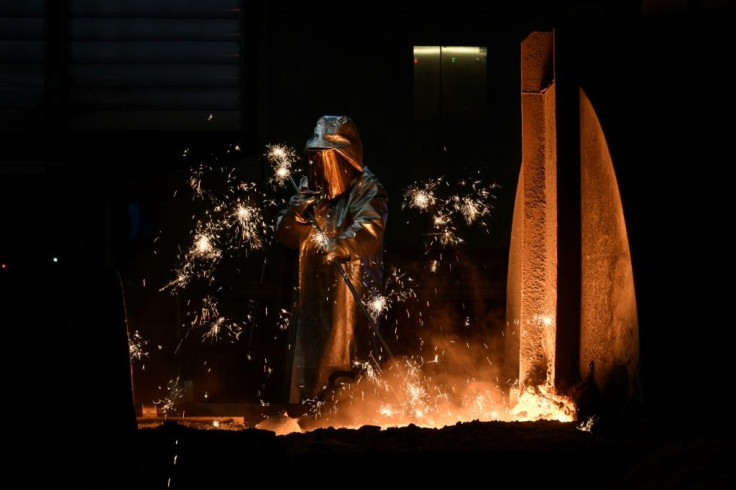Thyssenkrupp Ploughs Deeper Into Loss In 2018-19

Troubled German industrial conglomerate Thyssenkrupp on Thursday reported it ground deeper into the red in its 2018-19 fiscal year, with more pain ahead from a hefty restructuring plan and job cuts.
The group, a sprawling behemoth that makes products from raw steel to submarines, elevators and car parts, booked a net loss of 304 million euros ($337 million) in the year to September.
That loss was five times worse than in its previous fiscal year.
Operating, or underlying profit fell 71 percent, to 272 million euros, although revenues grew one percent to almost 42 billion -- making for an operating margin of just 0.6 percent.
"The performance of many of our businesses is not satisfying," chief executive Martina Merz said.
"This is also due to the fact that necessary structural improvements and restructuring measures were not implemented with the necessary consequence. We will now tackle this," she added.
The restructuring is expected to take between two and three years, Merz added.
Merz, former head of the supervisory board, stepped in as CEO in September after a round of musical chairs at the top of Thyssenkrupp prompted by its business woes.
Predecessor Guido Kerkhoff stepped down after just 14 months on the job, having himself replaced a chief -- Heinrich Hiesinger -- who was driven out largely by pressure from activist investors.
Kerkhoff's grand plan for Thyssenkrupp had been to split the company into two halves -- "Materials" and "Industrials".
But European Commission competition watchdogs threw a spanner into the works by forbidding a merger of its steelmaking arm with Indian company Tata.
Some 6,000 of Thyssenkrupp's 160,000 jobs are now set to go, including 4,000 in Germany.
"We can't rule out that there might be more jobs that we have to eliminate," human resources chief Oliver Burkhard said at a press conference Thursday.
So far, the group has agreed 2,100 job cuts with unions.
Meanwhile the company's crown jewel -- its highly profitable elevators division -- is slated either for sale or a stock market flotation, with a decision expected in "the first quarter of 2020".
There is "a lot of interest" from "several" investors in the unit, finance director Johannes Dietsch said.
Analysts value the elevators business at up to 17 billion euros -- around twice the market capitalisation of Thyssenkrupp as a whole.
The group offered little detail on its plans for the steel unit beyond saying executives are "currently working on a concept" whose "aim is to give steel a long-term perspective", set to be presented next month.
Meanwhile Thyssenkrupp said its industrial plant building division could invite new investors aboard or be hived off entirely.
Given the group's losses, executives plan not to pay shareholders a dividend for 2018-19.
Looking ahead, Thyssenkrupp said it was "generally cautious" about 2019-20, warning that "economic and geopolitical uncertainties" threatened especially "cyclical" businesses like materials and car components.
Adjusted operating profit should come in around the same level as the 802 million euros booked in 2018-19, but the group forecasts a "significantly higher net loss" based especially on "expenses for the intensification of restructuring".
Its long-term woes have seen Thyssenkrupp plunge out of the DAX index of blue-chip German shares.
On Thursday, the stock was trading down 10.5 percent, at 12.10 euros around 11:45 am (1045 GMT).
© Copyright AFP 2024. All rights reserved.











